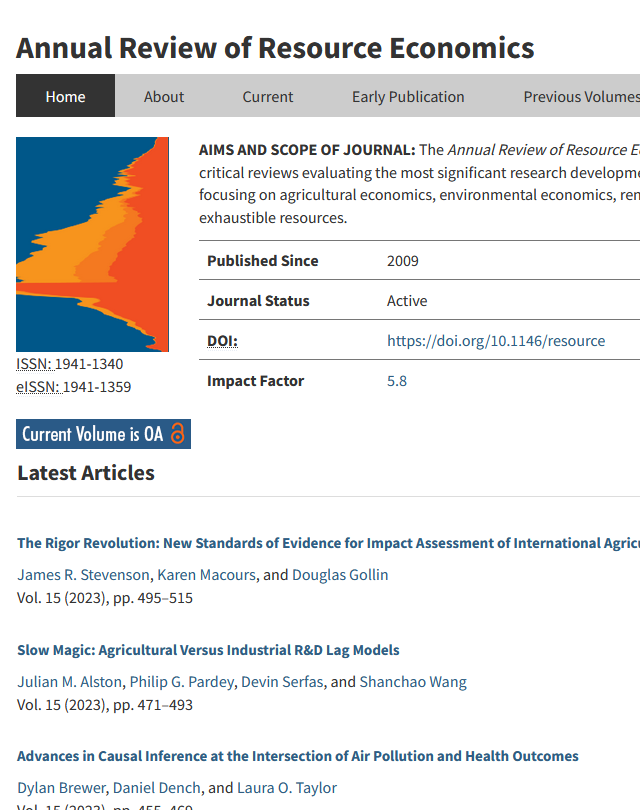自然资源产业政策设计的政经结合
IF 8.4
2区 经济学
Q1 AGRICULTURAL ECONOMICS & POLICY
Annual Review of Resource Economics
Pub Date : 2025-08-11
DOI:10.1146/annurev-resource-013024-033035
引用次数: 0
摘要
长期以来,关于产业政策的辩论一直在政府干预的支持者和自由市场的倡导者之间两极分化。支持者主张纠正市场失灵和培育产业,而反对者则警告称,政府无力“挑选赢家”,而且容易受到寻租利益的影响。当前文献忽略的是,有效的产业政策必须同时设计扩大馅饼的“公共产品”政策和适当的再分配政策,以促进其政治接受度。利用这一概念,本文提出了一种新的方法,通过扩展政治-经济寻求转移和政治-经济资源交易(PEST-PERT)组合框架来检查农业、自然资源和环境部门的产业政策的有效性。提出了几个实证例子,包括生态系统服务支付、保护计划、农业政策改革、提高玉米生产力的发展补贴、基础设施建设和交通投资。这些产业政策组合分为两种政策类型:(a)扩大馅饼的政策,促进公共产品,降低交易成本,解决协调失败;(b)再分配政策往往需要克服来自阻挠联盟的反对。在每个实证研究中,都指定了政策组合,以区分这两种类型的政策。本文章由计算机程序翻译,如有差异,请以英文原文为准。
Integrating Political-Economic Industrial Policy Design in Natural Resource Sectors
The debate on industrial policies has long been polarized between proponents of government intervention and free-market advocates. Proponents argue for market failure correction and industry nurturing, while opponents warn of the inability of the government to “pick winners” and its vulnerability to rent-seeking interests. What the current literature overlooks is that effective industrial policies must simultaneously design pie-expanding “public good” policies with appropriate redistribution policies to facilitate their political acceptance. Using this notion, this review proposes a new approach by extending the political-economic seeking transfer and political-economic resource transaction (PEST-PERT) portfolio framework to examine the efficacy of industrial policies in the agricultural, natural resource, and environmental sectors. Several empirical examples are presented, including payment for ecosystem services, conservation programs, agricultural policy reform, development subsidies to increase maize productivity, infrastructure development, and transportation investments. These industrial policy portfolios are dissected for two policy types: (a ) pie-expanding policies that promote public goods, reduce transaction costs, and resolve coordination failures; and (b ) redistributive policies often needed to overcome opposition from blocking coalitions. In each empirical study, the policy portfolio is specified, distinguishing these two types of policies.
求助全文
通过发布文献求助,成功后即可免费获取论文全文。
去求助
来源期刊

Annual Review of Resource Economics
AGRICULTURAL ECONOMICS & POLICY-
CiteScore
9.40
自引率
0.00%
发文量
34
期刊介绍:
The Annual Review of Resource Economics provides authoritative critical reviews evaluating the most significant research developments in resource economics, focusing on agricultural economics, environmental economics, renewable resources, and exhaustible resources.
 求助内容:
求助内容: 应助结果提醒方式:
应助结果提醒方式:


